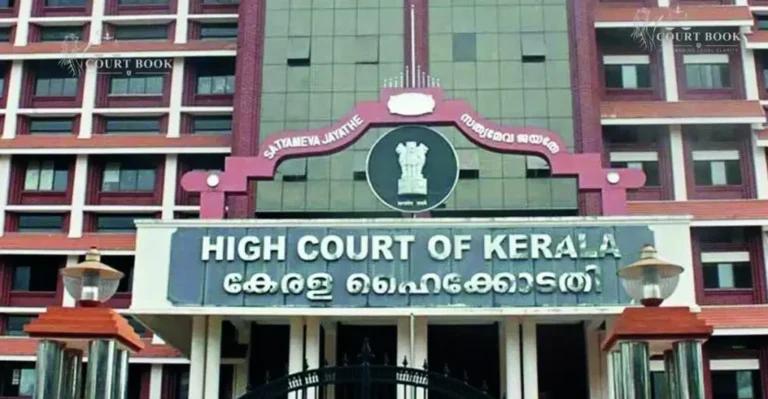The Kerala High Court on April 2, 2024, granted bail to ten members of the banned outfit Popular Front of India (PFI), who are accused in the murder of RSS leader S.K. Sreenivasan in Palakkad, Kerala.
A Division Bench comprising Justice Raja Vijayaraghavan V. and Justice P.V. Balakrishnan granted bail to eight of the accused: Nassar, Jamsheer H., Abdul Basith, Muhammed Shefeek K., Ashraf K., Jishad B., Ashraf alias Ashraf Moulavi, and Sirajudheen.
Read also: Service Charge Is Voluntary, Cannot Be Made Compulsory on Food Bills: Delhi High Court
The reasons for granting bail were:
- The accused had already undergone more than two years of detention without the trial beginning.
- There was no direct evidence found against them.
- The case materials were voluminous, and the trial is unlikely to conclude within a reasonable period.
"Even if the trial starts soon, it will take a considerable amount of time due to the extensive evidence. The trial cannot be completed within a reasonable timeframe."
The Supreme Court had stayed the proceedings of the NIA Special Court through a petition filed by some of the accused. This stay order delayed the framing of charges.
The High Court clarified:
"The accused cannot be blamed for taking up legitimate contentions and approaching the highest court of the land to ventilate the grievances and obtain favourable orders. What matters essentially is the period of pre-trial detention the accused has endured and the possibility of the trial being delayed even further."
The High Court also granted bail to two other accused, Shefeek and Jafar B., who had been arrested in March 2024 and February 2024 respectively.
The Court noted that:
- They were not served with the written grounds of arrest at the time of their detention, which is a procedural lapse.
Background of the Case
The murder of RSS leader S.K. Sreenivasan was initially investigated by the Kerala Police. Later, the National Investigation Agency (NIA) took over, citing a larger conspiracy behind the act.
According to the NIA:
"The murder was part of the Popular Front of India’s master plan to overthrow Indian democracy and establish Islamic rule by 2047."
The NIA alleged that the act was aimed at creating fear in society by targeting a prominent Hindu leader, and there was no personal enmity involved.
Read also: Income Tax Bill 2025 Empowers Officials to Access Assessee's Computer System in Certain Cases
A comprehensive final report was filed against 59 accused. The charges include:
- Indian Penal Code (IPC): Sections 120B, 34, 109, 115, 118, 119, 143, 144, 147, 148, 449, 153A, 341, 302, 201, 212 read with 149 and 120B read with 302.
- Religious Institutions (Prevention of Misuse) Act, 1988: Section 3(a)(b)(d) read with Section 7.
- Unlawful Activities (Prevention) Act (UAPA): Sections 13, 16, 18, 18A, 18B, 20, 22C, 23, 38, and 39.
- Arms Act: Section 25(1)(a).
The petitioners submitted that the initial Kerala Police investigation had concluded that the murder of Sreenivasan was an act of retaliation following the killing of a PFI activist named Subair.
They further alleged:
"The NIA is giving a communal colour to the entire case just to invoke UAPA provisions and make it a terrorism case."
The Court observed that this was not the first instance of bail being granted in this case. In earlier proceedings, bail had already been granted to 18 other accused based on similar grounds related to prolonged detention and absence of direct involvement.
Read also: BharatPe Wins Trademark Battle: Delhi High Court Stops Use of 'Bharatpay'
To support its decision, the High Court referred to important Supreme Court rulings, which emphasized the right to a fair and speedy trial even under UAPA provisions. The cases cited include:
- Shaheen Welfare Association v. Union of India (1996)
- Union of India v. K.A. Najeeb (2021)
- Athar Parwez v. Union of India (2024)
These cases establish that courts must consider the overall delay in trial and conditions of prolonged detention while deciding on bail, even in serious offences under special laws like UAPA.
Case No: Crl.A 228 of 2025 & Connected cases
Case Title: Nassar v Union of India and Another & Connected Cases















